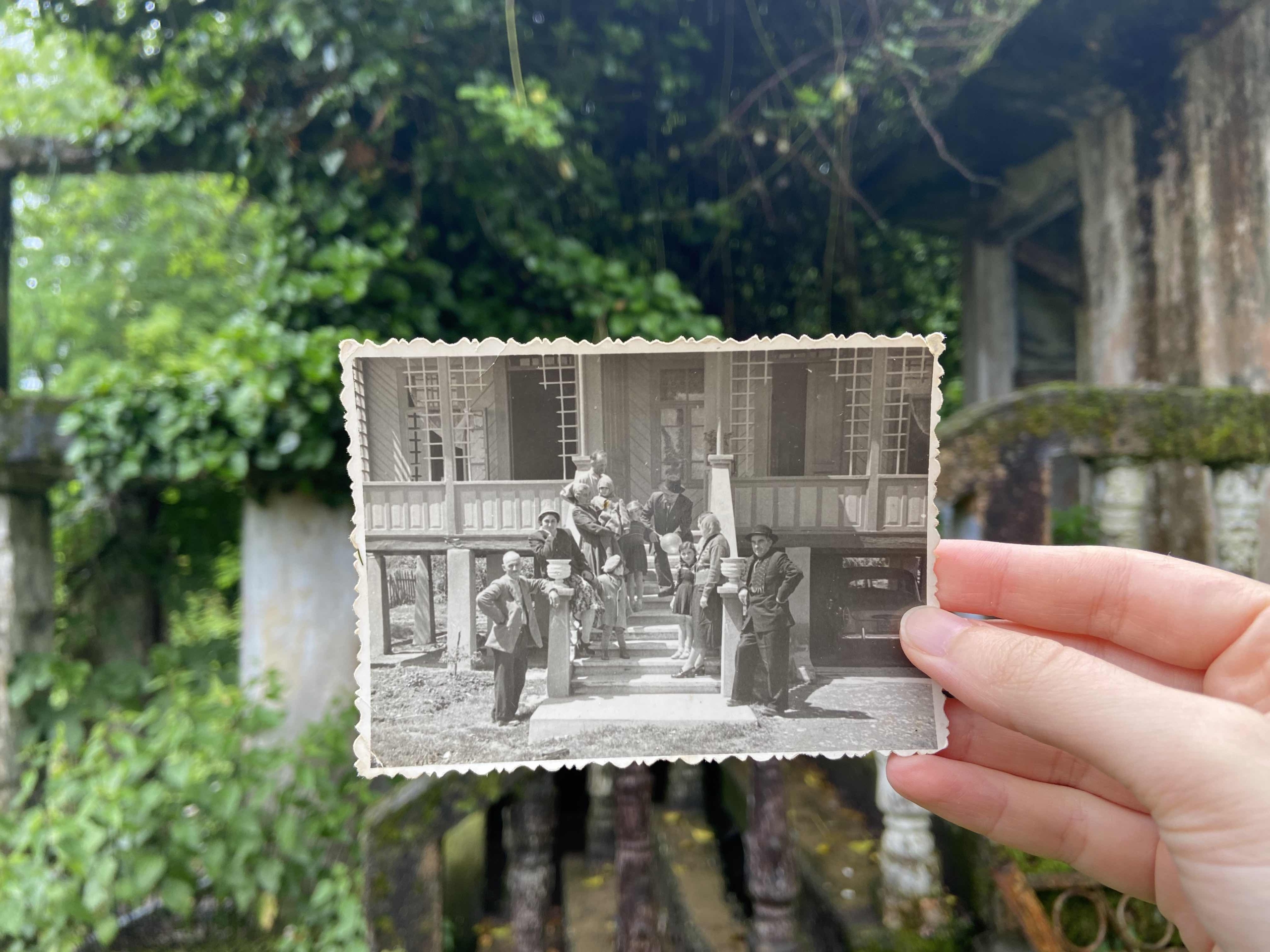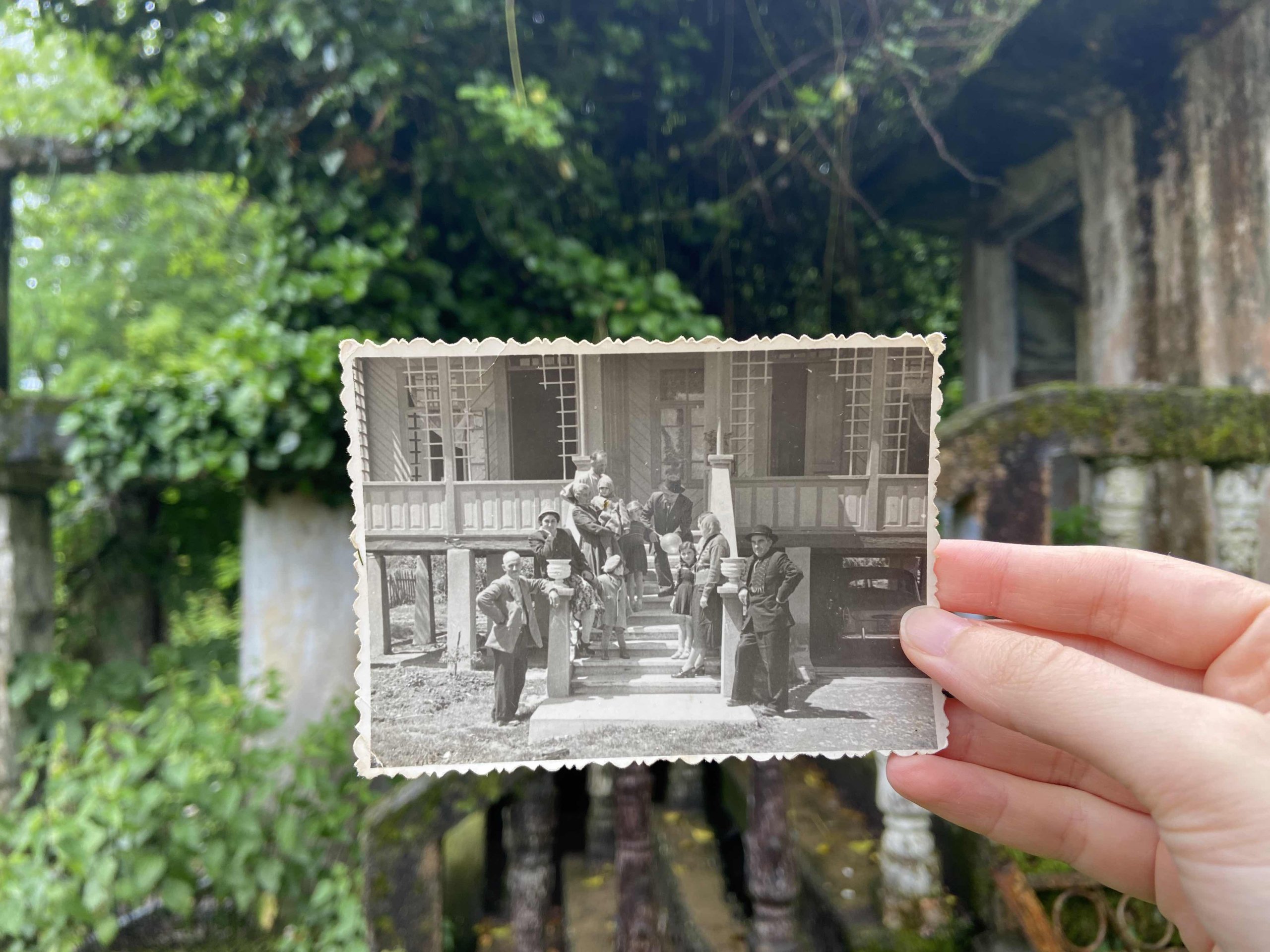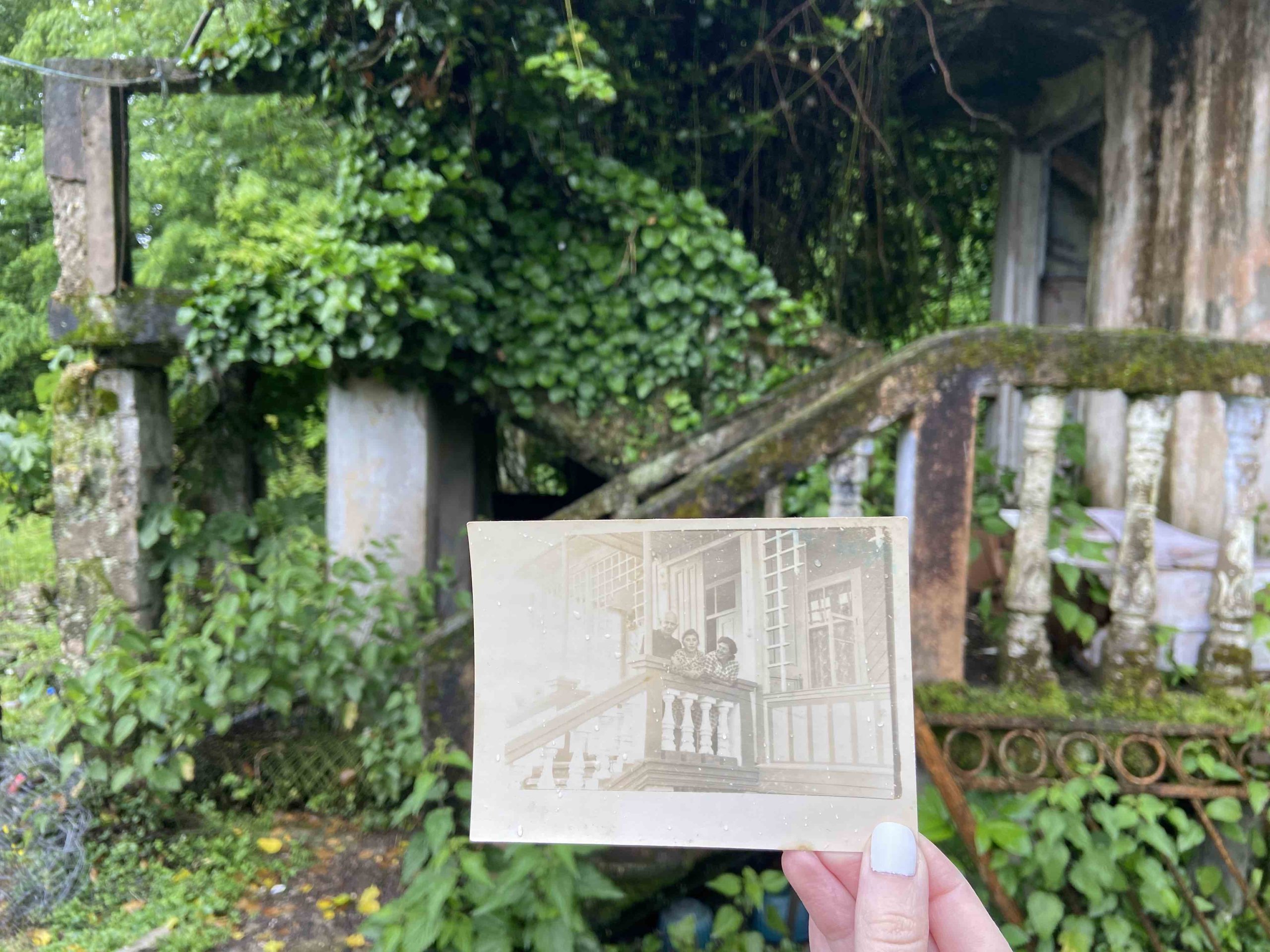
We are driving to my grandma’s house, passing through the village of Tamish, which was heavily impacted by the Georgian-Abkhaz conflict.
Tamish is located in Abkhazia, in the Ochamchira district, about 40 minutes from the capital. At the start of the conflict, it had nearly as many Georgians as Abkhazians, and both segments of the population were inevitably affected by the war.
As we drive closer to the village, I can't help but reminisce about the many happy days I spent there. My grandma is, and always will be, an example of virtue to me. She is someone who, through her actions, has shown me what it means to persevere while remaining gentle. Coming to see my grandma was always a blast, not only because of how much we love her but also because, as “city children,” we would do things that seemed exciting to an average child, like, for example, playing with dogs, helping grandma with the garden, or feeding the chickens. I remember how every visit would end with her giving us the fruits of her labor - whether it was cheese or a pie she made herself, or vegetables from her garden. Going home empty-handed was never an option. As I think about all of this, we are already in the village.
Passing the abandoned houses, you can still feel the echo of the war. But it’s not something that upsets you anymore because now you are used to it and there is a nice feeling of knowing that for every abandoned house, there is a dwelling house of someone who has put a lot of effort and physical work to make a living for themselves despite all the trials and tribulations. Among these families you can feel the sense of community which is a huge part of Abkhaz culture. They do a lot of things together-starting from having a cup of coffee early in the morning to ordering fodder for livestock and groceries from the man that comes to the village twice a week on his truck. In the village everyone knows everyone and there is a sense of safety in that. Contemplating about it all, I am finally approaching my grandma’s house. I am feeling a bit anxious, I am scared that my questions might open up her wounds of the past. That’s why I let my grandma take the lead and reminisce about the stories of her life while occasionally asking her just a few questions.
It was really rare that Grandma would talk to us about war, it was more something that could come up in a conversation which is understandable considering the trauma that is still echoing in our day-to-day life.
My Grandma, Alisa, was an only child. People say that children with no siblings tend to grow into adults that can be quite selfish but that is the last thing you can say about my grandma. But I guess in a way that prepared her for how she lives now - alone in the village as she refuses to come live in the city with her family in fear of being a burden. Grandma comes from quite a sophisticated family-her father, Aleksey, being a judge and mother - Maro - a teacher. Due to their line of work the family was well known around the neighborhood and loved by many. Grandma recalls: “A lot of guests would come to our house - all friends of my father, as well as mom’s students who would pay us a surprise visit even long after they graduated from school. It was a usual thing for a bunch of people to gather at our place, especially during the holidays”. Maro was impeccable at cooking-a skill which was passed on from one generation to another as grandma and my own mother are excellent cooks as well. Besides, food is something that grandma and I can bond over - we often exchange recipes- me sharing some “European” ones, as she calls them, and her - traditional Abkhaz ones. Alisa is always eager to share her knowledge with me, often via video calls - something she has mastered in order to keep in touch with her family. Quite endearing, I must say.
Grandma took after her mother not only in cooking. She was of musical inclination, so later in life she went on to become a music teacher. Grandma recalls her parents being strict but at the same time willing to do everything for her.
Having known my grandma for 24 years, I was surprised to find out that she was a tomboy during her childhood. But here we were, hardly catching our breath while laughing at her stories of being an instigator of skipping lessons and almost being expelled from school. Grandma also tells me about the importance of friends when she says: “I remember how I would wake up really early and go to school with all the children of the village, we would wait for each other and go to school together on foot”.
I also managed to get a heartwarming story of how my grandpa confessed his feelings to my grandma which surprisingly even my mom hasn’t heard before.
Slowly our conversation acquires a more serious tone as we start to discuss the inevitable. At this point in my grandma’s story, she is an adult woman, married, with two daughters and her mother living with them. Right now, grandma lives in the same place, but not in the same house. That one was burnt down during the war. The house used to be a place of unity and comfort.
Alisa shares: “All the relatives and neighbor children would gather in our house on New Year’s Day and play games and quizzes for which they would get particularly delicious candy that I purchased in Moscow”. Now, however, Grandma lives in what used to be a warehouse at the time, just opposite the remnants of the house that was burnt down. Even though she lives in good conditions with her own household, good community and family that visits her as much as they can, I can’t help but think that the memories haunt her every time her eye catches the sight of the remnants of the old house, whether it’s when she goes to feed the cows or water her flowers. But I dare not ask her if it’s true.
At the beginning of the war, after being in a situation of great danger, the family decided to leave Tamish. My great grandmother, Maro, however, refused to do so. She didn’t want to leave the house and being Georgian, she was sure that no harm would be done to her. But she was very wrong, she was condemned for the fact that her late husband and her son in law (my grandfather) were Abkhaz. After that, thanks to the goodwill of some Abkhaz people, she was relocated to Sukhum for some time before she could be reunited with her family in Gagra. Once my mother shared a doleful memory with me. My great grandma used to be a plump woman and when she finally joined them in Gagra, my mother hugged her and was shocked to realize that Maro lost so much weight that she could easily wrap her arms around her which she wasn’t able to do before. My great grandma died not long after my grandfather. And so my Grandma, Alisa, was left a single mother with two young daughters. Raising two daughters in the aftermath of the war was no easy task that a lot of Abkhaz women had to face. After her mother’s death, Grandma had no choice but to stay in Tamish while her two daughters went back and forth between the capital and the village since they had to go to university. On days off they would go to the capital on a bus to sell the cheese that Grandma made. That and the fact that Grandma had lots of farm animals that gave food, as well as the vegetable garden they had, was the main source of finance for the family at the time. Having spent her youth in quite comfortable conditions, she had to forget about all of it, when the war started in the blink of an eye. And so she stepped up for the sake of her family. And she wasn’t the only one. Surely, Grandma was not some kind of exception. A lot of widows had to put themselves aside and be the mental and financial backbone of their family at the postwar time.
Our conversation ended when coffee was ready and Grandma opened the cupboard to get some candy that sure wasn’t from Moscow but it was delicious nonetheless. And all I was left with was the feeling of inspiration and gratitude.

